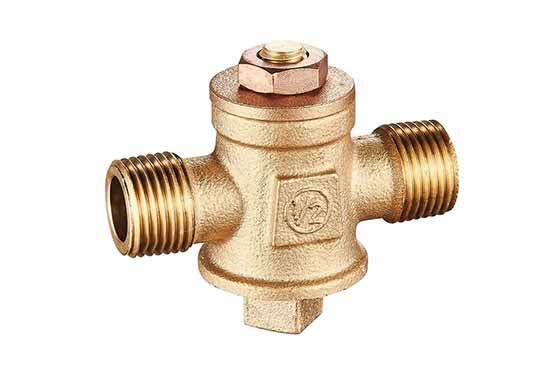30
2024
-
09
The difference between bronze valves and brass valves
The difference between bronze valves and brass valves mainly lies in material composition, mechanical properties, corrosion resistance, thermal conductivity, and applicable scenarios.
1、 Material composition
Bronze valve: The basic material of bronze valves is an alloy of copper and zinc, with copper content exceeding 60%, and sometimes may also contain small amounts of metal elements such as phosphorus and tin. This alloy ratio enables bronze valves to exhibit excellent hardness and strength.
Brass valve: Brass valves are mainly made of copper, with the addition of various elements such as zinc, lead, tin, etc. The copper content is below 60%. This multi-element alloy endows brass valves with a range of unique properties.
2、 Mechanical performance
Bronze valve: Due to its high copper content, bronze valves have high strength and hardness, and can withstand high pressure, making them suitable for use in high-pressure environments.
Brass valve: Relatively speaking, the mechanical performance of brass valves is slightly inferior, with lower strength and hardness, making them more suitable for low-pressure environments.
3、 Corrosion resistance
Bronze valve: Bronze valves contain a small amount of metal elements such as phosphorus and tin, which help improve the anti-corrosion ability of the valve and enable it to be used for a long time in corrosive environments without being easily damaged.
Brass valves: Although brass valves also have good corrosion resistance, they may not be as durable as bronze valves in some highly corrosive media, and brass valves are relatively easy to rust.
4、 Thermal conductivity
Bronze valve: Bronze valves have poor thermal conductivity, making them more suitable for high-pressure valve applications that require stable medium temperature.
Brass valves: Brass valves can transfer heat faster, making them more common in cold and hot water systems where thermal conductivity is required.
5、 Applicable scenarios
Bronze valve: Due to its high strength, high hardness, and good corrosion resistance, bronze valves are more suitable for controlling high-pressure, high-temperature, and high viscosity liquids or gases in harsh environments. Such as chemical industry, petrochemical industry, water supply and drainage engineering, food and beverage industry, etc.
Brass valve: Brass valves are widely used in low-pressure, low viscosity liquid or gas pipeline systems due to their relatively low cost and good comprehensive performance. Such as cold and hot water systems, air conditioning systems, etc.
In summary, there are significant differences between bronze valves and brass valves in terms of material composition, mechanical properties, corrosion resistance, thermal conductivity, and applicable scenarios. When selecting valves, the appropriate material and model should be chosen based on the specific usage environment and requirements.
Previous


